Nurse-Midwifery and Family Nursing
Frontier Nursing University’s mission is built on more than 100 years of experience in nurse-midwifery and family care. The Frontier Graduate School of Midwifery was started in 1939 by the Frontier Nursing Service (FNS) as a part of its demonstration project in the care of the mother and child in rural areas of Kentucky. When FNS began using nurse-midwives in the United States in 1925, it was able to secure a qualified staff in only two ways, by sending American nurses to Great Britain for graduate training or by enlisting British nurses already qualified as midwives. In the early years, the FNS offered scholarships to American nurses to go to Great Britain for training in nurse-midwifery, and recruited British nurse-midwives.
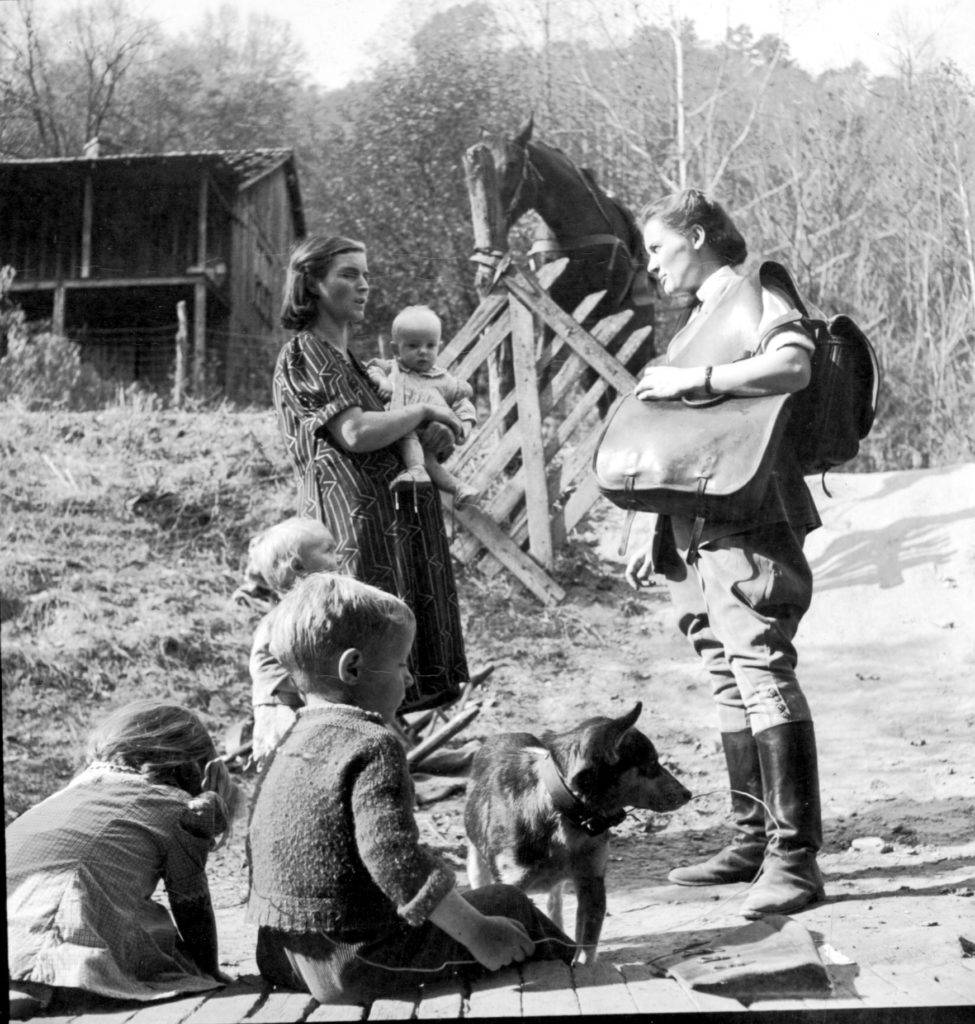
From the beginning, Mary Breckinridge viewed nurse-midwifery as central to health care. When World War II started in 1939, a number of the British members of the FNS staff wished to return to their homes. Under war conditions, it was not possible to continue to send American nurses to Great Britain. The FNS immediately put into operation its plan for a graduate school of nurse-midwifery. The Frontier Graduate School of Midwifery enrolled its first class November 1, 1939. Frontier Nursing University has been in continuous operation since that time.
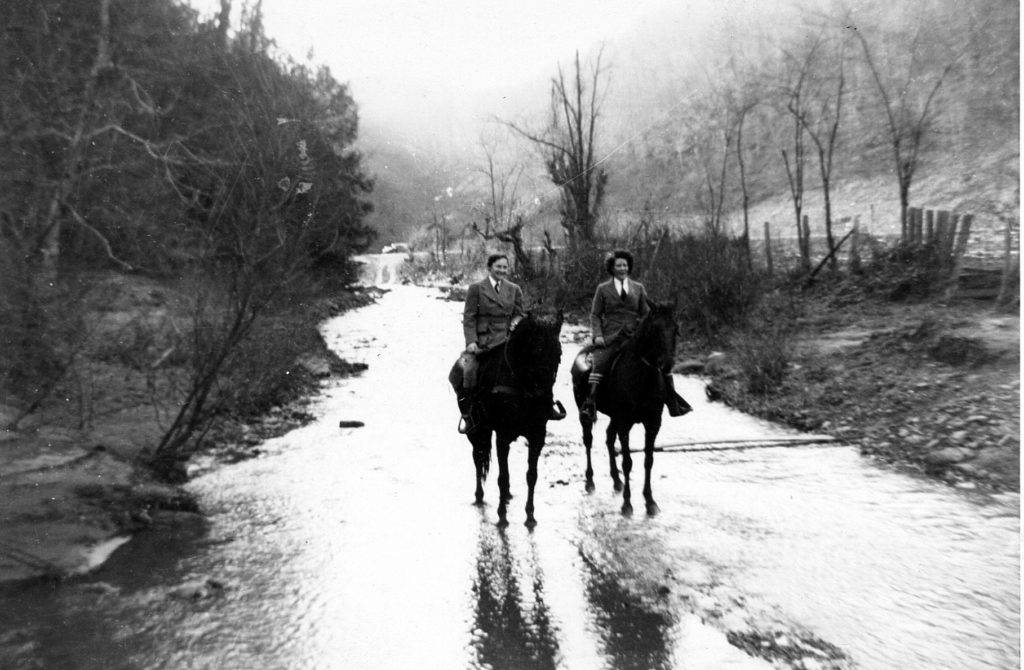
Two nurses on horseback.
Community-based Education Allows Nurses to Remain in Home Communities
As the number of births decreased in Leslie County during the 1980s it became difficult to support a traditional midwifery program. In 1989, the nurse-midwifery program was transferred to the University of New Mexico. That class graduated on October 27, 1991, under the flag of the Frontier School of Midwifery and Family Nursing (FSMFN). During this time, the Community-based Nurse-midwifery Education Program (CNEP) began as a pilot project funded by the PEW Foundation. The development of the CNEP was originally a cooperative effort of the Maternity Center Association (MCA), the National Association of Childbearing Centers (NACC), Frances Payne Bolton School of Nursing, Case Western Reserve University (FPBSON/CWRU) and the Frontier Nursing Service (FNS).
The goal was to enable nurses to remain in their communities while obtaining graduate education as nurse-midwives and ultimately increase the number of practicing nurse-midwives working in underserved areas. The pilot project was very successful. In 1990, the FSMFN recognized that the CNEP model of education matched its own goals and mission. The president of the school and the board of directors voted to adopt the CNEP as its nurse-midwifery education program in 1991. CNEP has since graduated thousands of nurse-midwives.
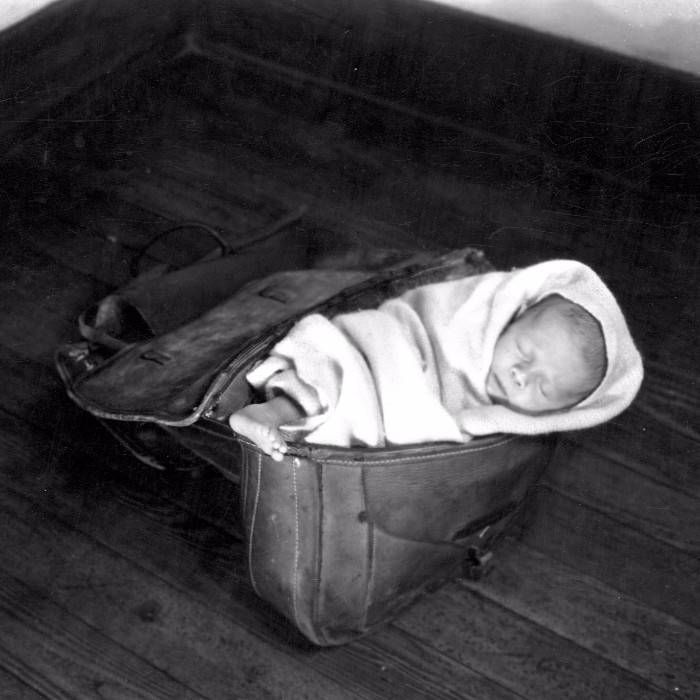 In the early days of the Frontier Nursing Service, the nurse-midwives rode their horses to the homes of local women to assist them in labor and birth. The horses could easily navigate the mountains and streams. The saddlebags were equipped with the materials used by the midwives.
In the early days of the Frontier Nursing Service, the nurse-midwives rode their horses to the homes of local women to assist them in labor and birth. The horses could easily navigate the mountains and streams. The saddlebags were equipped with the materials used by the midwives.
Just as today, children would often ask from where babies come. Since new babies usually arrived after a visit from a nurse-midwife, the children were politely told that the nurse-midwives brought them in their saddlebags. And so this picture was taken.
Since then, this story has been passed on. In Leslie County, Kentucky (home of Frontier Nursing University), parents don't have to use the stork or cabbage patch lore. Children know where babies REALLY come from... midwives’ saddlebags!
Frontier Introduces Family Nursing Education
In the late 1960s, the Frontier Nursing Service recognized that as health care options became more complex, a broader based education was necessary for nurses to provide comprehensive primary care to all family members. At this time, the FSMFN developed the first certificate program to prepare family nurse practitioners. In 1970, the name of the Frontier Graduate School of Midwifery was changed to the Frontier School of Midwifery and Family Nursing (FSMFN) to reflect the addition of the FNP program. The last class to graduate from the combined family nurse-midwifery program was in August of 1990.
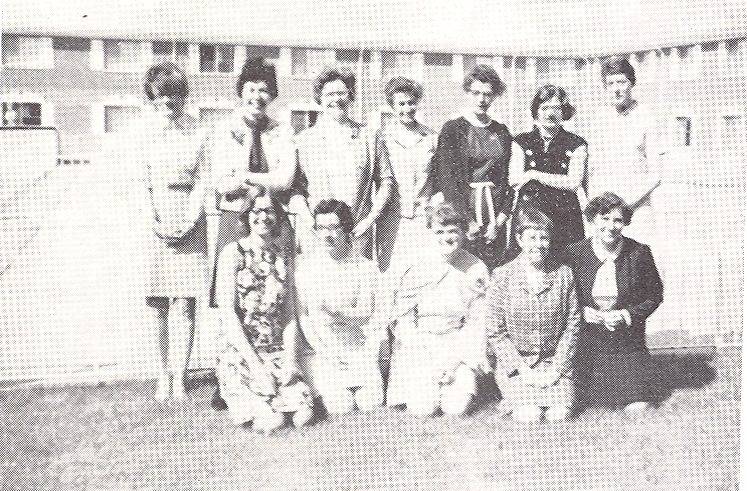
The Community-based Family Nurse Practitioner (CFNP) education program was re-established in 1999 using the CNEP distance education model. With the acceptance of CFNP class 1 in 1999, the FSMFN came full circle in its mission to educate nurses to provide primary care that is comprehensive, safe and culturally sensitive. In 2003 FSMFN began offering an MSN in the specialties of nurse-midwifery and family nurse practitioner, and a certificate in the women’s health care nurse practitioner specialty. In 2005, FSMFN added the Women’s Health Care Nurse Practitioner track to the MSN options and added a post-graduate certificate for all three tracks.
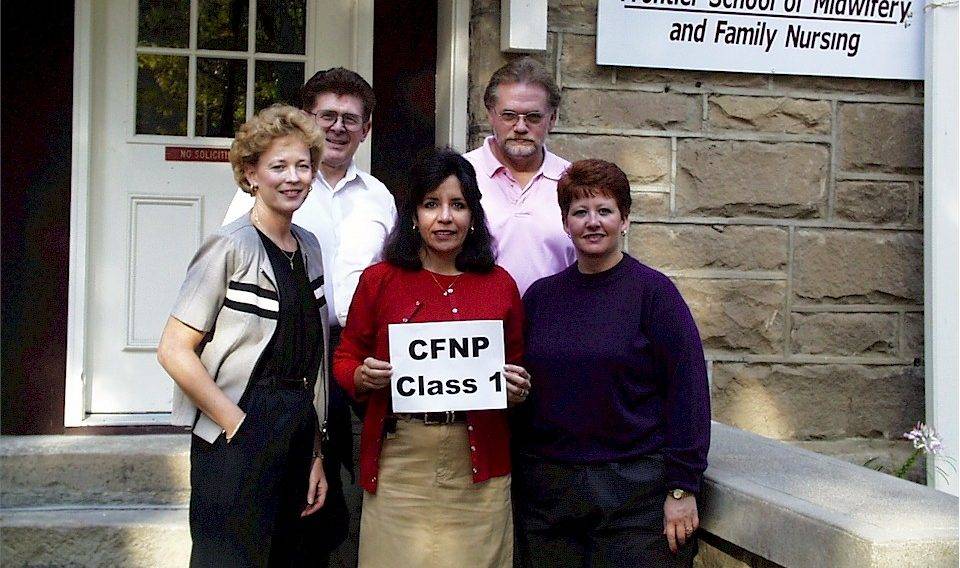
Frontier Adds Doctor of Nursing Practice & Changes Name
In October 2004, members of the American Association of Colleges of Nursing (AACN) endorsed the Position Statement on the Practice Doctorate in Nursing which called for moving the level of preparation necessary for advanced nursing practice roles from the master's degree to the doctorate level by the year 2015. FSMFN moved forward with plans to include the addition of a Doctor of Nursing Practice in the program offerings in 2007. The first class of DNP students enrolled in October 2008. The introduction of the DNP ensured that FSMFN would remain a leading institution in advanced practice nursing education and offer quality programs at all levels to nurse-midwives and nurse practitioners throughout the country.
On July 1, 2011, the Frontier School of Midwifery and Family Nursing officially changed its name to Frontier Nursing University to better reflect its status as a graduate school of nursing.
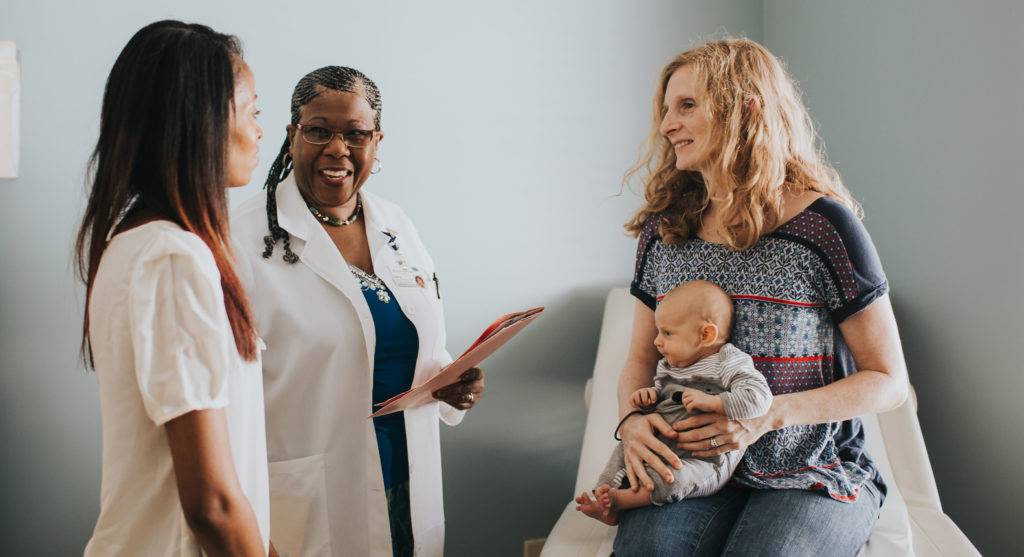
FNU Addresses Current Health Care Needs in Rural & Medically Underserved Populations
In July 2016, Frontier Nursing University (FNU) announced a new online program for nurse-midwives and nurse practitioners seeking a post-graduate certificate in psychiatric-mental health nursing. The inaugural class started January 2017. In 2018, the Psychiatric-Mental Health Nurse Practitioner specialty track expanded to registered nurses seeking a Master of Nursing Science in Nursing (MSN).
In 2025, Frontier Nursing University honored 100 years of healthcare service and education since our inception as Frontier Nursing Service in 1925.
Faces of Frontier
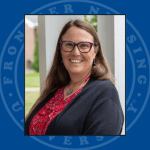
Faculty Spotlight: NRHA Names Associate Professor Dr. Joanne Keefe a 2026 Rural Health Fellow
At the heart of Frontier Nursing University is a talented community of students, graduates, faculty, staff, Couriers and preceptors. Spotlight blogs feature members of our FNU community that are … [Read More...]
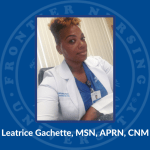
Featured Preceptor: Leatrice Gachette guides students in discovering their power
At the heart of Frontier Nursing University is a talented community of students, graduates, faculty, staff, Couriers and preceptors. Spotlight blogs feature members of our FNU community that are … [Read More...]

Staff Spotlight: Turning her own experience into impact, Tai Bates helps FNU students thrive
At the heart of Frontier Nursing University is a talented community of students, graduates, faculty, staff, Couriers and preceptors. Spotlight blogs feature members of our FNU community that are … [Read More...]



















 Carrie Belin is an experienced board-certified Family Nurse Practitioner and a graduate of the Johns Hopkins DNP program, Johns Hopkins Bloomberg School of Public Health, Georgetown University School of Nursing, and Johns Hopkins School of Nursing. She has also completed fellowships at Georgetown and the University of California Irvine.
Carrie Belin is an experienced board-certified Family Nurse Practitioner and a graduate of the Johns Hopkins DNP program, Johns Hopkins Bloomberg School of Public Health, Georgetown University School of Nursing, and Johns Hopkins School of Nursing. She has also completed fellowships at Georgetown and the University of California Irvine. Angie has been a full-scope midwife since 2009. She has experience in various birth settings including home, hospital, and birth centers. She is committed to integrating the midwifery model of care in the US. She completed her master’s degree in nurse-midwifery at Frontier Nursing University (FNU) and her Doctorate at Johns Hopkins University. She currently serves as the midwifery clinical faculty at FNU. Angie is motivated by the desire to improve the quality of healthcare and has led quality improvement projects on skin-to-skin implementation, labor induction, and improving transfer of care practices between hospital and community midwives. In 2017, she created a short film on skin-to-skin called
Angie has been a full-scope midwife since 2009. She has experience in various birth settings including home, hospital, and birth centers. She is committed to integrating the midwifery model of care in the US. She completed her master’s degree in nurse-midwifery at Frontier Nursing University (FNU) and her Doctorate at Johns Hopkins University. She currently serves as the midwifery clinical faculty at FNU. Angie is motivated by the desire to improve the quality of healthcare and has led quality improvement projects on skin-to-skin implementation, labor induction, and improving transfer of care practices between hospital and community midwives. In 2017, she created a short film on skin-to-skin called 










 Justin C. Daily, BSN, RN, has ten years of experience in nursing. At the start of his nursing career, Justin worked as a floor nurse on the oncology floor at St. Francis. He then spent two years as the Director of Nursing in a small rural Kansas hospital before returning to St. Francis and the oncology unit. He has been in his current position as the Chemo Nurse Educator for the past four years. He earned an Associate in Nurse from Hutchinson Community College and a Bachelor of Science in Nursing from Bethel College.
Justin C. Daily, BSN, RN, has ten years of experience in nursing. At the start of his nursing career, Justin worked as a floor nurse on the oncology floor at St. Francis. He then spent two years as the Director of Nursing in a small rural Kansas hospital before returning to St. Francis and the oncology unit. He has been in his current position as the Chemo Nurse Educator for the past four years. He earned an Associate in Nurse from Hutchinson Community College and a Bachelor of Science in Nursing from Bethel College. Brandy Jackson serves as the Director of Undergraduate Nursing Programs and Assistant Educator at Wichita State University and Co-Director of Access in Nursing. Brandy is a seasoned educator with over 15 years of experience. Before entering academia, Brandy served in Hospital-based leadership and Critical Care Staff nurse roles. Brandy is passionate about equity in nursing education with a focus on individuals with disabilities. Her current research interests include accommodations of nursing students with disabilities in clinical learning environments and breaking down barriers for historically unrepresented individuals to enter the nursing profession. Brandy is also actively engaged in Interprofessional Education development, creating IPE opportunities for faculty and students at Wichita State. Brandy is an active member of Wichita Women for Good and Soroptimist, with the goal to empower women and girls. Brandy is a TeamSTEPPS master trainer. She received the DASIY Award for Extraordinary Nursing Faculty in 2019 at Wichita State University.
Brandy Jackson serves as the Director of Undergraduate Nursing Programs and Assistant Educator at Wichita State University and Co-Director of Access in Nursing. Brandy is a seasoned educator with over 15 years of experience. Before entering academia, Brandy served in Hospital-based leadership and Critical Care Staff nurse roles. Brandy is passionate about equity in nursing education with a focus on individuals with disabilities. Her current research interests include accommodations of nursing students with disabilities in clinical learning environments and breaking down barriers for historically unrepresented individuals to enter the nursing profession. Brandy is also actively engaged in Interprofessional Education development, creating IPE opportunities for faculty and students at Wichita State. Brandy is an active member of Wichita Women for Good and Soroptimist, with the goal to empower women and girls. Brandy is a TeamSTEPPS master trainer. She received the DASIY Award for Extraordinary Nursing Faculty in 2019 at Wichita State University.  Dr. Sabrina Ali Jamal-Eddine is an Arab-disabled queer woman of color with a PhD in Nursing and an interdisciplinary certificate in Disability Ethics from the University of Illinois Chicago (UIC). Dr. Jamal-Eddine’s doctoral research explored spoken word poetry as a form of critical narrative pedagogy to educate nursing students about disability, ableism, and disability justice. Dr. Jamal-Eddine now serves as a Postdoctoral Research Associate in UIC’s Department of Disability and Human Development and serves on the Board of Directors of the National Organization of Nurses with Disabilities (NOND). During her doctoral program, Sabrina served as a Summer Fellow at a residential National Endowment of the Humanities (NEH) Summer Institute at Arizona State University (2023), a summer fellow at Andrew W. Mellon’s National Humanities Without Walls program at University of Michigan (2022), a Summer Research Fellow at UC Berkeley’s Othering & Belonging Institute (2021), and an Illinois Leadership Education in Neurodevelopmental and related Disabilities (LEND) trainee (2019-2020).
Dr. Sabrina Ali Jamal-Eddine is an Arab-disabled queer woman of color with a PhD in Nursing and an interdisciplinary certificate in Disability Ethics from the University of Illinois Chicago (UIC). Dr. Jamal-Eddine’s doctoral research explored spoken word poetry as a form of critical narrative pedagogy to educate nursing students about disability, ableism, and disability justice. Dr. Jamal-Eddine now serves as a Postdoctoral Research Associate in UIC’s Department of Disability and Human Development and serves on the Board of Directors of the National Organization of Nurses with Disabilities (NOND). During her doctoral program, Sabrina served as a Summer Fellow at a residential National Endowment of the Humanities (NEH) Summer Institute at Arizona State University (2023), a summer fellow at Andrew W. Mellon’s National Humanities Without Walls program at University of Michigan (2022), a Summer Research Fellow at UC Berkeley’s Othering & Belonging Institute (2021), and an Illinois Leadership Education in Neurodevelopmental and related Disabilities (LEND) trainee (2019-2020). Vanessa Cameron works for Vanderbilt University Medical Center in Nursing Education & Professional Development. She is also attending George Washington University and progressing towards a PhD in Nursing with an emphasis on ableism in nursing. After becoming disabled in April 2021, Vanessa’s worldview and perspective changed, and a recognition of the ableism present within healthcare and within the culture of nursing was apparent. She has been working since that time to provide educational foundations for nurses about disability and ableism, provide support for fellow disabled nursing colleagues, and advocate for the disabled community within healthcare settings to reduce disparities.
Vanessa Cameron works for Vanderbilt University Medical Center in Nursing Education & Professional Development. She is also attending George Washington University and progressing towards a PhD in Nursing with an emphasis on ableism in nursing. After becoming disabled in April 2021, Vanessa’s worldview and perspective changed, and a recognition of the ableism present within healthcare and within the culture of nursing was apparent. She has been working since that time to provide educational foundations for nurses about disability and ableism, provide support for fellow disabled nursing colleagues, and advocate for the disabled community within healthcare settings to reduce disparities. Dr. Lucinda Canty is a certified nurse-midwife, Associate Professor of Nursing, and Director of the Seedworks Health Equity in Nursing Program at the University of Massachusetts Amherst. She earned a bachelor’s degree in nursing from Columbia University, a master’s degree from Yale University, specializing in nurse-midwifery, and a PhD from the University of Connecticut. Dr. Canty has provided reproductive health care for over 29 years. Her research interests include the prevention of maternal mortality and severe maternal morbidity, reducing racial and ethnic health disparities in reproductive health, promoting diversity in nursing, and eliminating racism in nursing and midwifery.
Dr. Lucinda Canty is a certified nurse-midwife, Associate Professor of Nursing, and Director of the Seedworks Health Equity in Nursing Program at the University of Massachusetts Amherst. She earned a bachelor’s degree in nursing from Columbia University, a master’s degree from Yale University, specializing in nurse-midwifery, and a PhD from the University of Connecticut. Dr. Canty has provided reproductive health care for over 29 years. Her research interests include the prevention of maternal mortality and severe maternal morbidity, reducing racial and ethnic health disparities in reproductive health, promoting diversity in nursing, and eliminating racism in nursing and midwifery. Dr. Lisa Meeks is a distinguished scholar and leader whose unwavering commitment to inclusivity and excellence has significantly influenced the landscape of health professions education and accessibility. She is the founder and executive director of the DocsWithDisabilities Initiative and holds appointments as an Associate Professor in the Departments of Learning Health Sciences and Family Medicine at the University of Michigan.
Dr. Lisa Meeks is a distinguished scholar and leader whose unwavering commitment to inclusivity and excellence has significantly influenced the landscape of health professions education and accessibility. She is the founder and executive director of the DocsWithDisabilities Initiative and holds appointments as an Associate Professor in the Departments of Learning Health Sciences and Family Medicine at the University of Michigan. Dr. Nikia Grayson, DNP, MSN, MPH, MA, CNM, FNP-C, FACNM (she/her) is a trailblazing force in reproductive justice, blending her expertise as a public health activist, anthropologist, and family nurse-midwife to champion the rights and health of underserved communities. Graduating with distinction from Howard University, Nikia holds a bachelor’s degree in communications and a master’s degree in public health. Her academic journey also led her to the University of Memphis, where she earned a master’s in medical anthropology, and the University of Tennessee, where she achieved both a master’s in nursing and a doctorate in nursing practice. Complementing her extensive education, she completed a post-master’s certificate in midwifery at Frontier Nursing University.
Dr. Nikia Grayson, DNP, MSN, MPH, MA, CNM, FNP-C, FACNM (she/her) is a trailblazing force in reproductive justice, blending her expertise as a public health activist, anthropologist, and family nurse-midwife to champion the rights and health of underserved communities. Graduating with distinction from Howard University, Nikia holds a bachelor’s degree in communications and a master’s degree in public health. Her academic journey also led her to the University of Memphis, where she earned a master’s in medical anthropology, and the University of Tennessee, where she achieved both a master’s in nursing and a doctorate in nursing practice. Complementing her extensive education, she completed a post-master’s certificate in midwifery at Frontier Nursing University.









 Dr. Tia Brown McNair is the Vice President in the Office of Diversity, Equity, and Student Success and Executive Director for the Truth, Racial Healing, and Transformation (TRHT) Campus Centers at the American Association of Colleges and Universities (AAC&U) in Washington, DC. She oversees both funded projects and AAC&U’s continuing programs on equity, inclusive excellence, high-impact practices, and student success. McNair directs AAC&U’s Summer Institutes on High-Impact Practices and Student Success, and TRHT Campus Centers and serves as the project director for several AAC&U initiatives, including the development of a TRHT-focused campus climate toolkit. She is the lead author of From Equity Talk to Equity Walk: Expanding Practitioner Knowledge for Racial Justice in Higher Education (January 2020) and Becoming a Student-Ready College: A New Culture of Leadership for Student Success (July 2016 and August 2022 Second edition).
Dr. Tia Brown McNair is the Vice President in the Office of Diversity, Equity, and Student Success and Executive Director for the Truth, Racial Healing, and Transformation (TRHT) Campus Centers at the American Association of Colleges and Universities (AAC&U) in Washington, DC. She oversees both funded projects and AAC&U’s continuing programs on equity, inclusive excellence, high-impact practices, and student success. McNair directs AAC&U’s Summer Institutes on High-Impact Practices and Student Success, and TRHT Campus Centers and serves as the project director for several AAC&U initiatives, including the development of a TRHT-focused campus climate toolkit. She is the lead author of From Equity Talk to Equity Walk: Expanding Practitioner Knowledge for Racial Justice in Higher Education (January 2020) and Becoming a Student-Ready College: A New Culture of Leadership for Student Success (July 2016 and August 2022 Second edition).